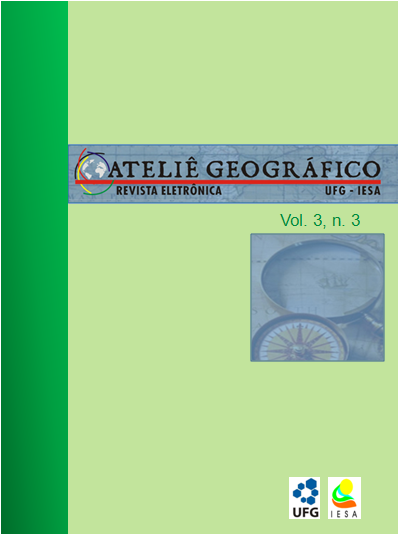THE CONSCIOUSNESS IN THE WORK OF JEAN PAUL SARTRE AND THE IMPLICATIONS FOR HUMANISTIC GEOGRAPHY: WAYS OF THINKING THE MAN-NATURE RELATIONSHIP
Abstract
The enterprise of organizing a unitary Geography is expressive today. In opposite direction, there are many tendencies that advocate in favor of a scientific condition that would enable us to think geographically accepting the duality. As a constant, we perceive that Geography, in its gradual loss of unity, distorts itself amid such need of discussing its distances and relations. The man-nature relation as a fundamental distance in Geography is the central element of our restlessness. The attempt is to find in the Jean-Paul Sartre’s thougts, the paths to deal with part of the anguish shared between all geographers, offering an alternative way to the fashionable integrative proposals of contemporary Geography. Keywords: man and nature relation, consciousness and world.Downloads
Download data is not yet available.
Downloads
Published
2010-01-08
How to Cite
SAFADI, Sandro de Oliveira; CHAVEIRO, Eguimar Felício. THE CONSCIOUSNESS IN THE WORK OF JEAN PAUL SARTRE AND THE IMPLICATIONS FOR HUMANISTIC GEOGRAPHY: WAYS OF THINKING THE MAN-NATURE RELATIONSHIP. Ateliê Geográfico Journal, Goiânia, v. 3, n. 3, p. 263–271, 2010. Disponível em: https://revistas.ufg.br/atelie/article/view/8604. Acesso em: 3 mar. 2026.
Issue
Section
Research Notes
License
Autores que publicam nesta revista concordam com os seguintes termos:- Autores mantém os direitos autorais e concedem à revista o direito de primeira publicação, com o trabalho simultaneamente licenciado sob a Licença Creative Commons Attribution que permite o compartilhamento do trabalho com reconhecimento da autoria e publicação inicial nesta revista.
- Os autores não serão remunerados pela publicação de trabalhos na Revista Ateliê Geográfico. Além disso, os conteúdos publicados são de inteira e exclusiva responsabilidade de seus autores, ainda que reservado aos editores o direito de proceder a ajustes textuais e de adequação às normas da publicação.
- Autores têm permissão e são estimulados a divulgar seu trabalho online (ex.: em repositórios institucionais ou na sua página pessoal), já que isso pode gerar alterações produtivas, bem como aumentar o impacto e a citação do trabalho publicado (Veja O Efeito do Acesso Livre).


